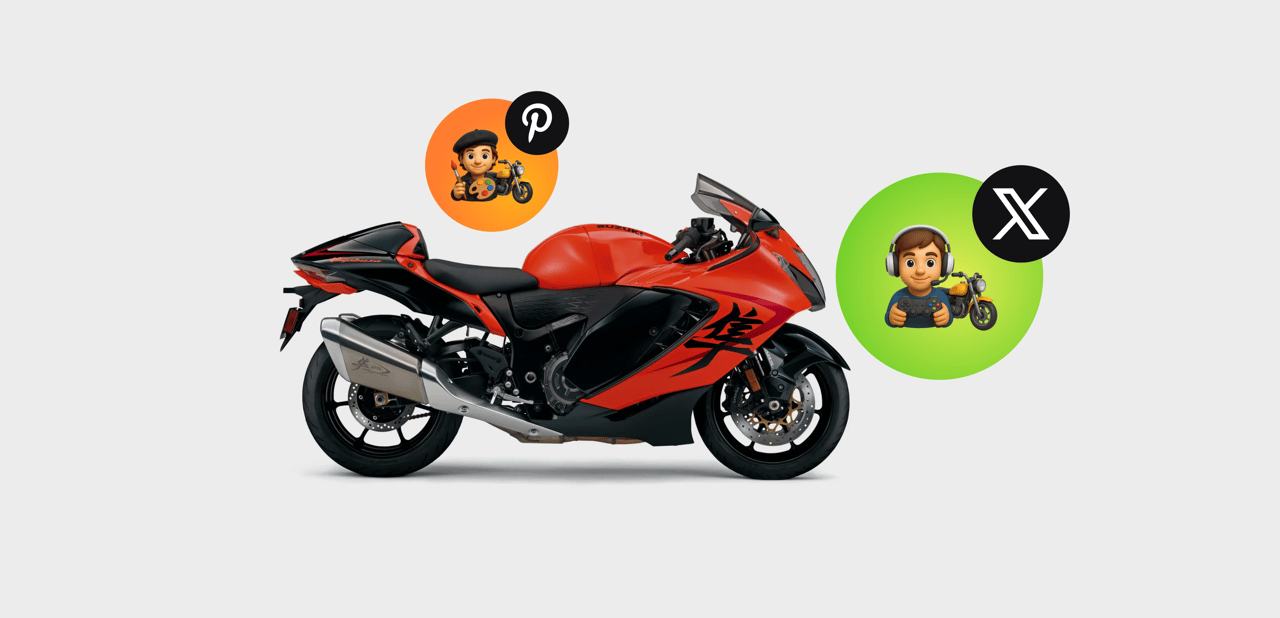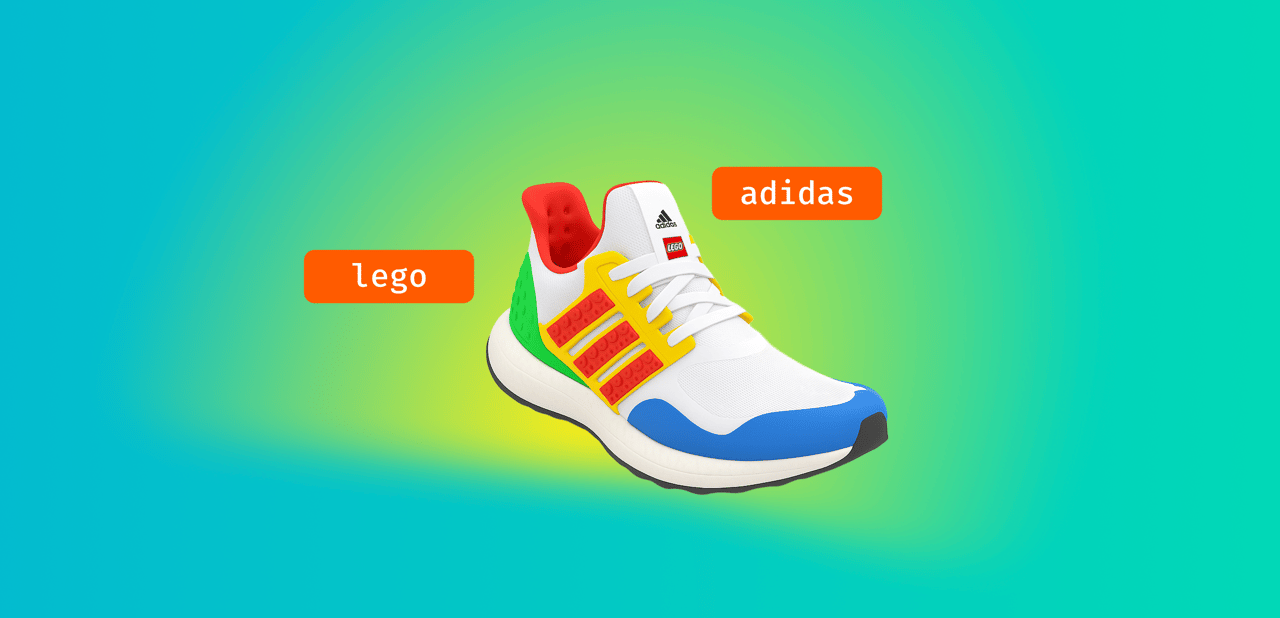How brands and agencies can benefit from social media intelligence

Social media has become an inevitable tool for any business in recent years. Companies use social media to interact with their customers, advertise their products, track competitors, and much more. However, social media intelligence expands brands' opportunities and gives more profound insights.
What is social media intelligence?
Social media intelligence (or SMI) is a set of technologies that assist businesses in monitoring social media and tracking numerous data points for advanced analytics and decision-making. Depending on software capabilities, one tool with more sophisticated features can cover this bundle of activities.
SMI allows brands to collect various data from social media platforms, analyze trends, conduct research, do competitive analysis, and so on.
Simply said, social media intelligence offers lots of opportunities for marketers, public relations professionals, researchers, and other people involved in social media. Users can move beyond simple tasks to execute profound and strategic work to develop their brands.
-1712239062.png)
-1712239062.png)
Difference between social media listening, monitoring, and intelligence
People frequently confuse or misunderstand these three concepts because they appear to be quite similar. However, they differ, so let's go over each of the tools and processes in detail.
Social media monitoring is the basis of SMI. Basically, it's the process of collecting all the mentions, engagement, number of followers, and other data points.
Meanwhile, monitoring is a subset of social media listening, which includes not just tracking but also analyzing all conversations about the monitored topic (for example, your brand overall or a specific product).
Finally, social media intelligence transforms all these data into comprehensive analytics. For instance, YouScan helps businesses analyze consumer opinions, discover actionable insights, and manage brand reputation.
Why should brands use social media intelligence?
According to statistics, there were almost 4 billion social media users worldwide, which means that more people are online than are not. Meanwhile, an average user spends around 144 minutes on social networks daily, equating to 2 hours and 24 minutes. Since those numbers are average, obviously, a huge portion of the audience is online much longer, while others open Facebook, for example, once a week.
While online social interactions have prevailed, especially in recent pandemic years, it has become vital for businesses to monitor discussions about their products and services. It's no secret that people share their experiences with different brands, whether on purpose or not. Often, such brand mentions contain valuable consumer insights or might be critical to brand reputation.
So, let's dive deeper into possible use cases of social media intelligence.
Detect consumer insights
In a nutshell, using social media intelligence tools, brands can access consumer insights to better understand their audience, especially details such as consumption situations and the proven ideas of what customers actually need.
Previously, brands primarily relied on text mentions trying to figure out how people are using this or that product, how they complement one another, and so on. But, in reality, people rarely express such nuances in their postings, and in some cases, they don't even think about such things. Meanwhile, such sophisticated features as image recognition allow brands to pinpoint the real-world use cases that are portrayed in social media photos.
.png)
.png)
For example, we decided to check out YouScan's Visual Insights to see what scenes and objects appeared the most frequently on photographs with the Oreo logo. It turned out, that apart from the iconic "twist, lick and dunk" method, Oreo is frequently used as an ingredient for baking, coffee drinks, and even chocolate cooking. The brand can use this information as an inspiration for new products or collaborations with other food producers.
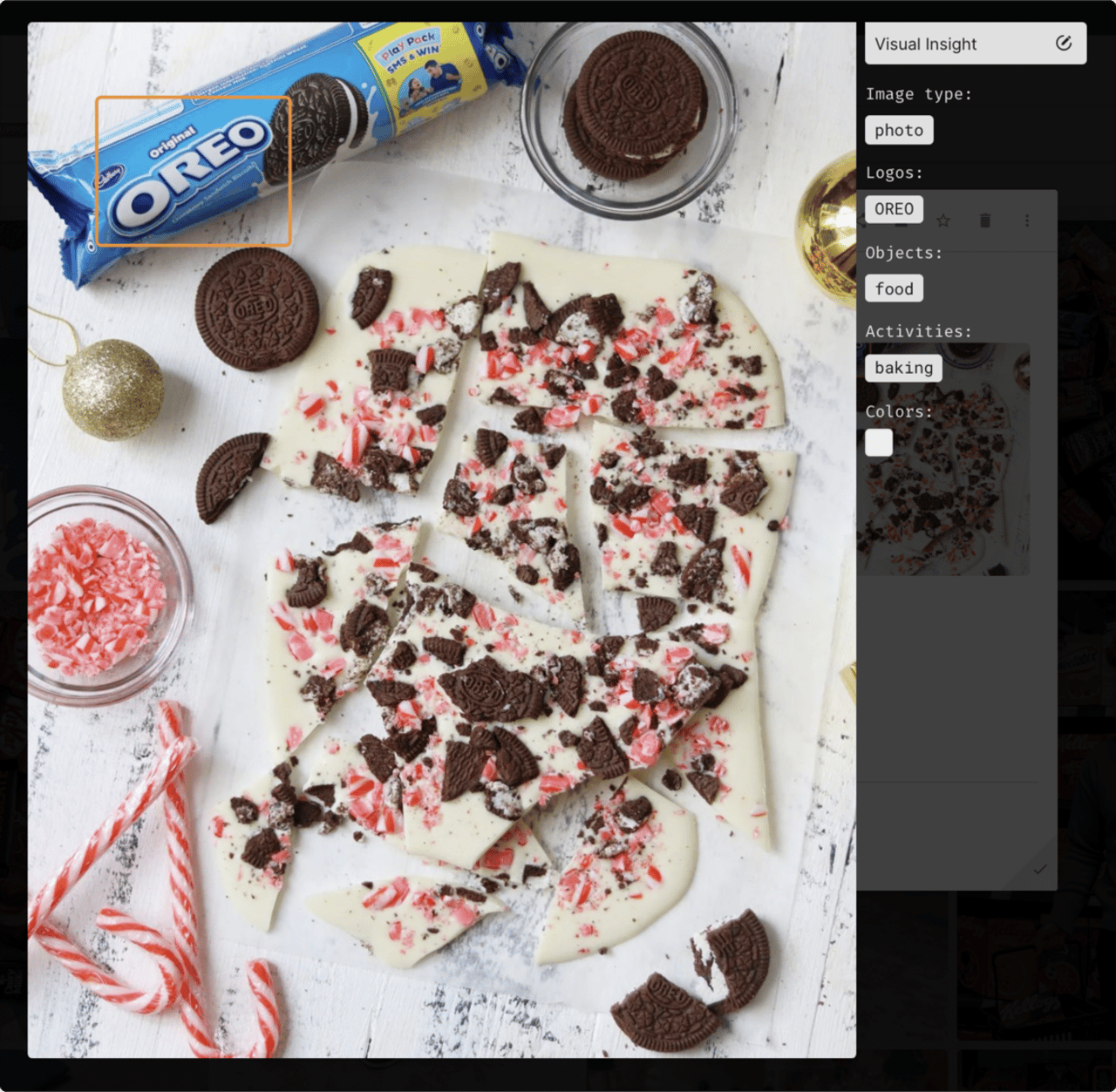

You can find even more tips on using visual listening in your marketing in our dedicated article.
Manage brand reputation
Establishing a positive online reputation is challenging, but maintaining it on the same level is even more complicated. A post from an influencer or a media incident can quickly change public perception of your brand. Even though most crises don't last long, some of them might have a negative impact on the company's revenue or market position.
That is why, in today's fast-paced environment, it is vital to monitor what is going on social media and make quick decisions. Brands can use social media intelligence tools to track the online situation in real-time. If a conversation gains traction, the software can detect it and provide smart alerts to users, ensuring that no trending conversation is overlooked.
KFC, for instance, has got into trouble many times, but the brand has always found the finest ways to restore its reputation. This time, a controversy happened when a woman found an entire chicken head in her wings bucket.
.png)
.png)
She posted about this situation on social media, and the fast-food chain promptly responded with an apology, a complimentary meal, and an invitation to witness all the processes that take place in the kitchen to assure that this would never happen again.
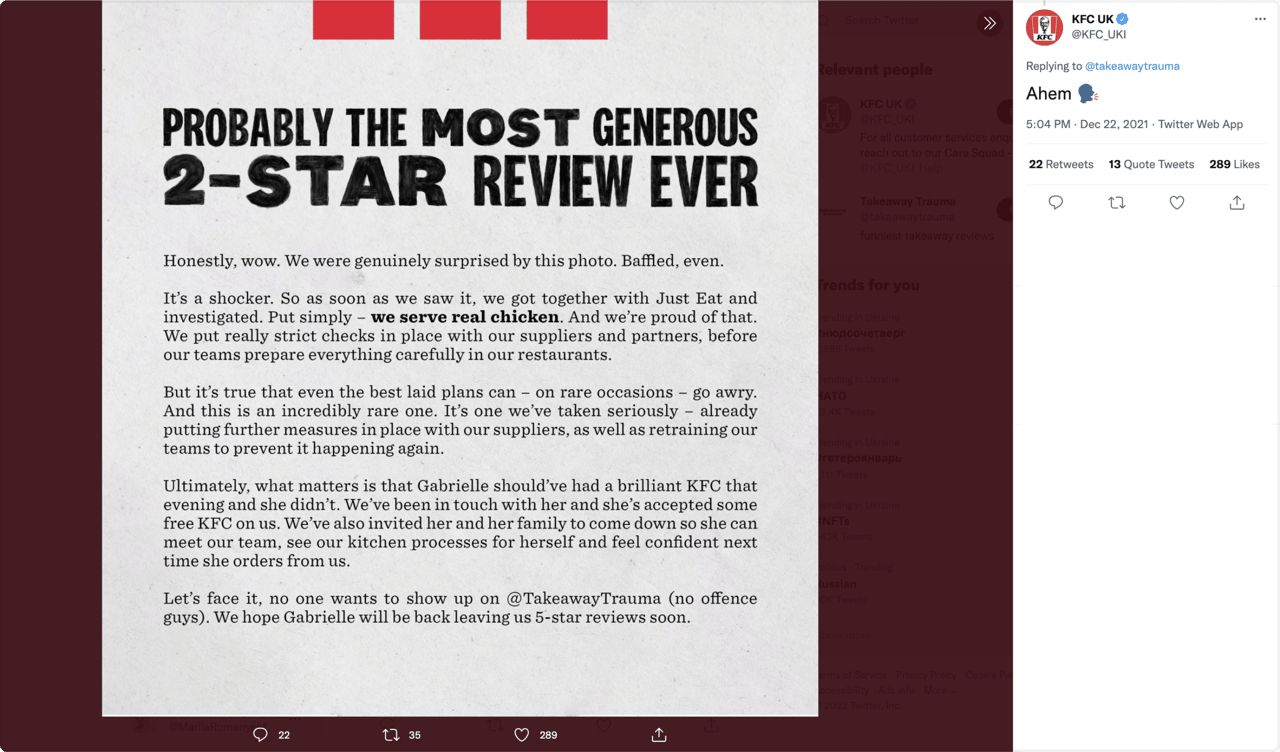

Find more examples of how KFC and other brands deal with reputation crises in this article.
Find influencers and brand ambassadors
Influencer marketing has become a must for many brands since the audience trusts social media influencers more than direct advertising or traditional celebrities. Meanwhile, as the internet gets increasingly crowded with bloggers, Instagrammers, YouTubers, TikTokers, and other influencers, it becomes more difficult to find and select those who will complement your business and form a profitable collaboration.
With social media intelligence, marketers can easily locate those content creators and authors, who've already mentioned their brand or related products. At the same time, you can check if the influencer worked with your competitors before or examine how the audience perceives this person.
At YouScan, you can sort authors by number of followers, engagement, or by number of mentions.
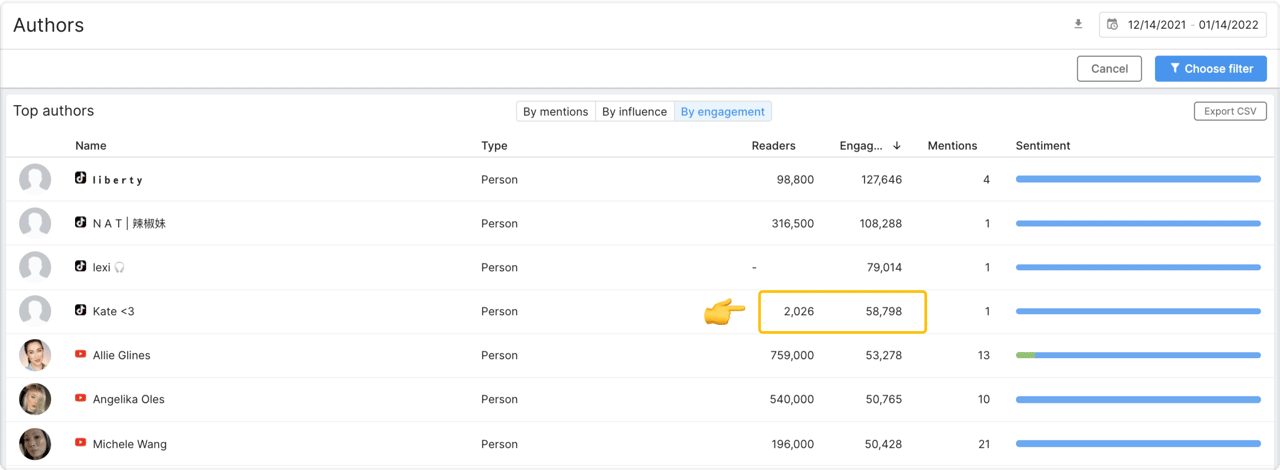

For example, one of the mentions in the Glossier topic came from TikToker, who barely has 2K followers. Nonetheless, her video was more engaging than those of the following YouTubers on the list. The video is about arranging all of your skincare products at home, with the majority of them from Glossier. The brand could have reached her and sent a branded organizer or other personalized gift. Such unexpected attention from favorite brands usually makes people love them even more, so she might have become a new Glossier ambassador.
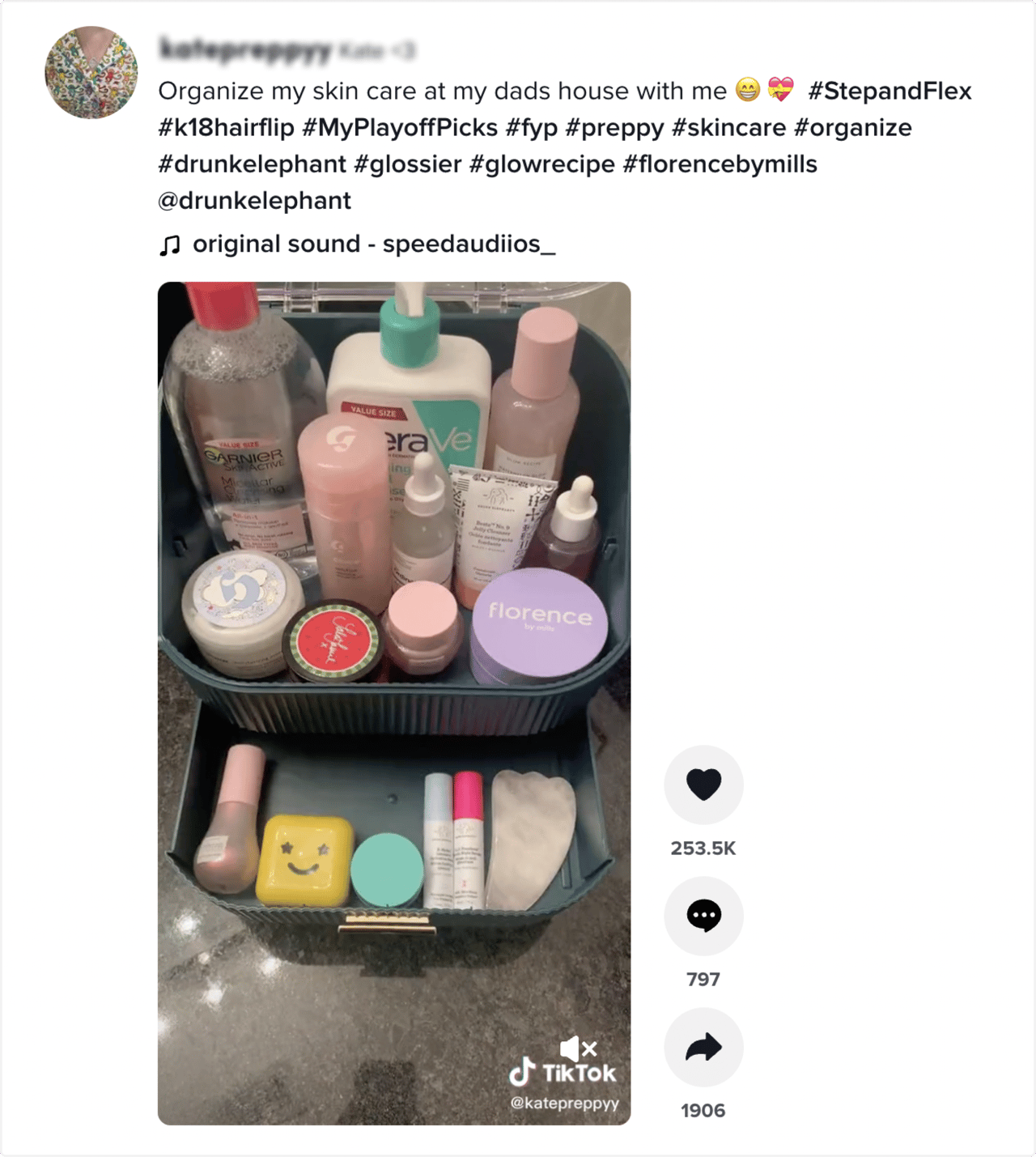

Another winning strategy is to build long-term relations with loyal customers or influencers that you've partnered with, turning them into brand ambassadors. Such a type of partnership can raise trust among the audience, as brand advocates promote products or services for a long time and typically in a more genuine manner.
Measure marketing performance and sponsorships
The last but not least use-case for social media intelligence is evaluating your advertising or communication campaigns and sponsorships. The fact is that there are many more activities that YouScan can help you with, but we decided to include only the most common ones in this guide so as not to overwhelm you.
Calculating the true reach of offline marketing initiatives, particularly sponsorships, is a common challenge for any marketer. While owned or paid digital channels are easy to trace, estimating how many times your logo appears in images following a sporting event is nearly impossible. Aside from that, media outlets rarely disclose precise statistics on publications to brands (which is usually a KPI).
Meanwhile, social media intelligence tools, powered by image recognition (which we described earlier), help companies in measuring photo engagement, distribution, and calculating a more realistic potential reach for each sponsorship. For example, marketers can figure out the brand appearances, share of voice, impact score, and other valuable metrics.
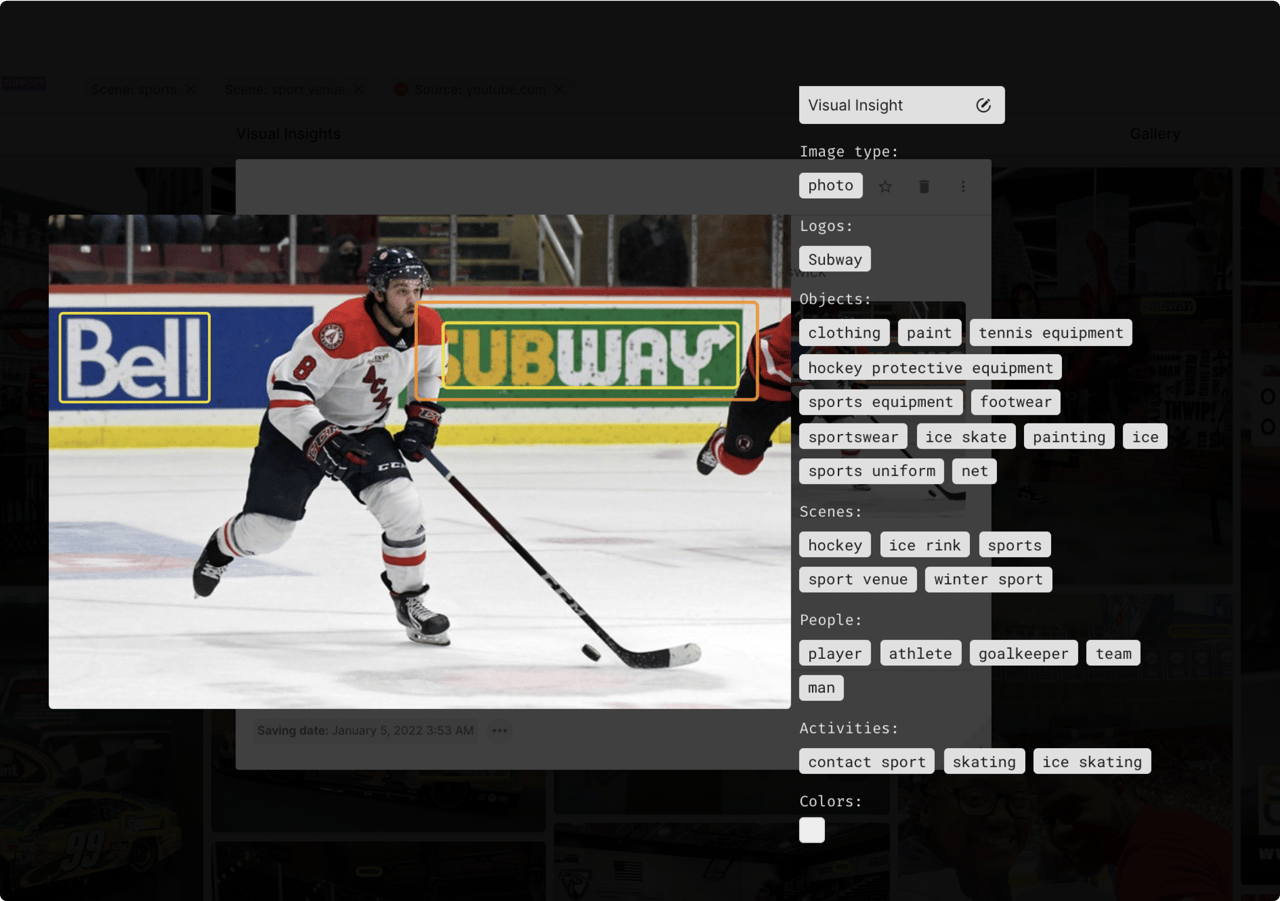

By the way, we've prepared a detailed 25-page sample report for the Ski World Cup final that is free to download. It can help you grasp how various metrics are calculated and what data you can obtain using computer vision.
Aside from that, businesses may access hundreds of user-generated photographs and analyze who may have seen their logo, in what contexts, and how their brand was depicted in general. This data can also be used as an inspiration for future campaigns.
-1712239062.png)
-1712239062.png)
Bottom line
Social media intelligence is a versatile tool for brands as it helps to better understand their audiences and track any changes in dynamics. While there are numerous tools on the market, each with its own set of features, it can be challenging to choose which software is best for your company's needs.
But don't worry, we've got you covered! You can find more tips and advice on picking the right media intelligence in our free guide.



